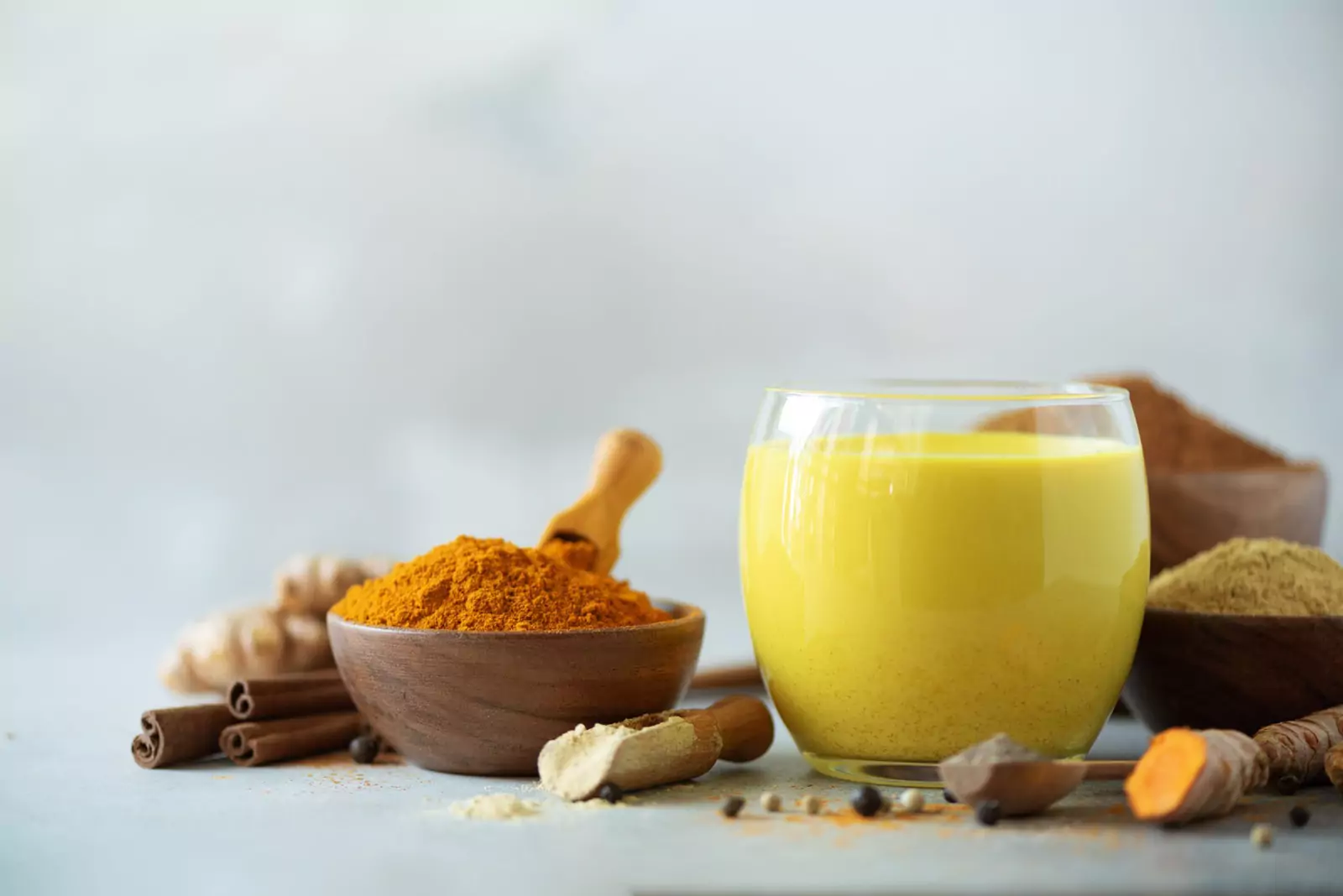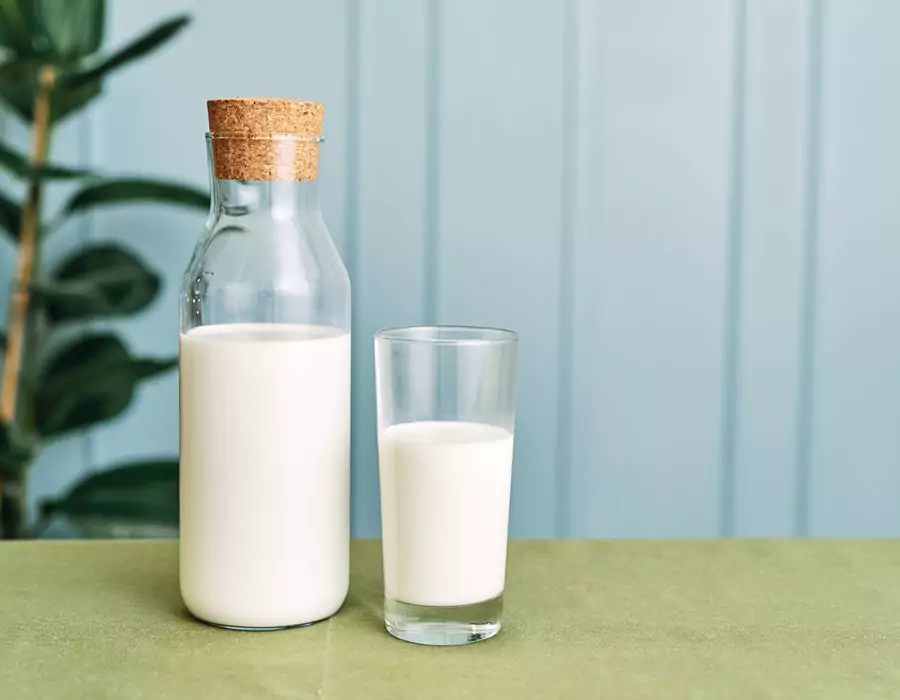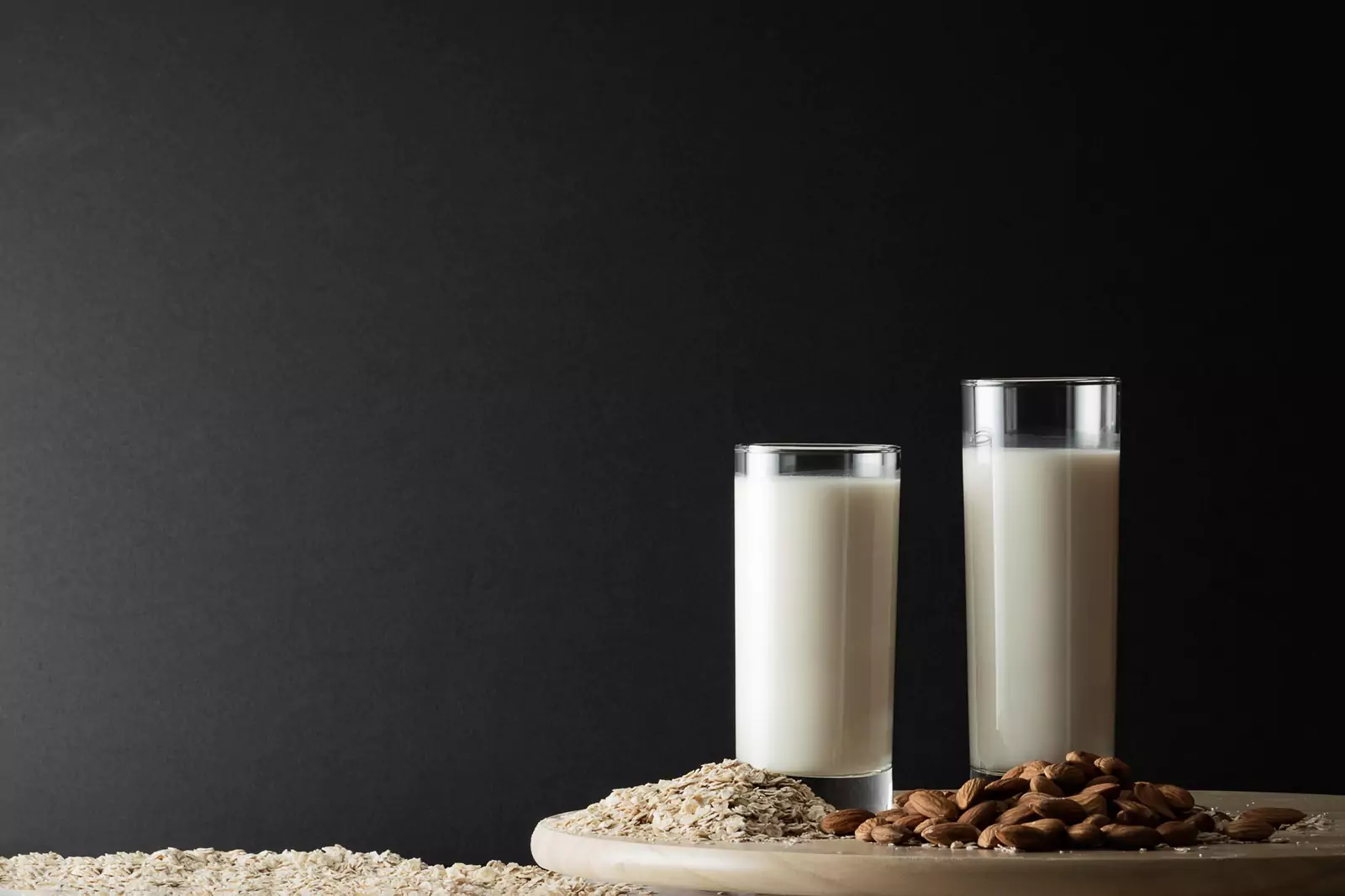




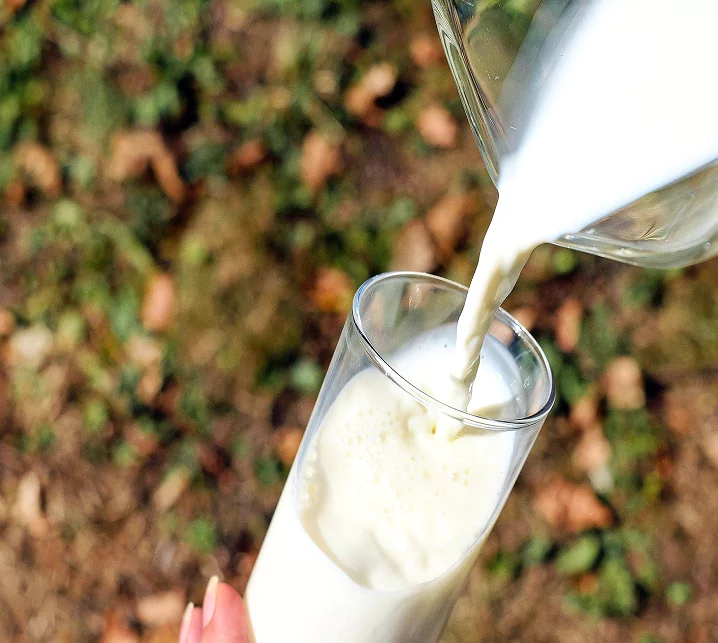
Can Diabetics Drink Milk Without Blood Sugar Spike?


Is Milk Okay For People with Diabetes to Drink?
Milk is a common dairy item and an essential part of our diet. It is also considered a complete food. Can diabetics drink Milk as well? Milk is naturally loaded with many vital nutrients, fats, proteins, carbs, minerals, and vitamins. Milk is also beneficial for growth, bone, and teeth formation and improves your appetite.
But Does Milk affect blood sugar levels? Does it lower or raise blood sugar? We will answer these questions today. It improves your metabolism and helps to maintain good health. Milk proteins also help in balancing your blood glucose levels.
But for diabetics, milk is a controversial food item. I have a lot of milk addicts in my practice and I tell them to drink responsibly. Let’s learn how diabetics can drink milk without raising their blood sugar.
Is milk good for diabetic patients?
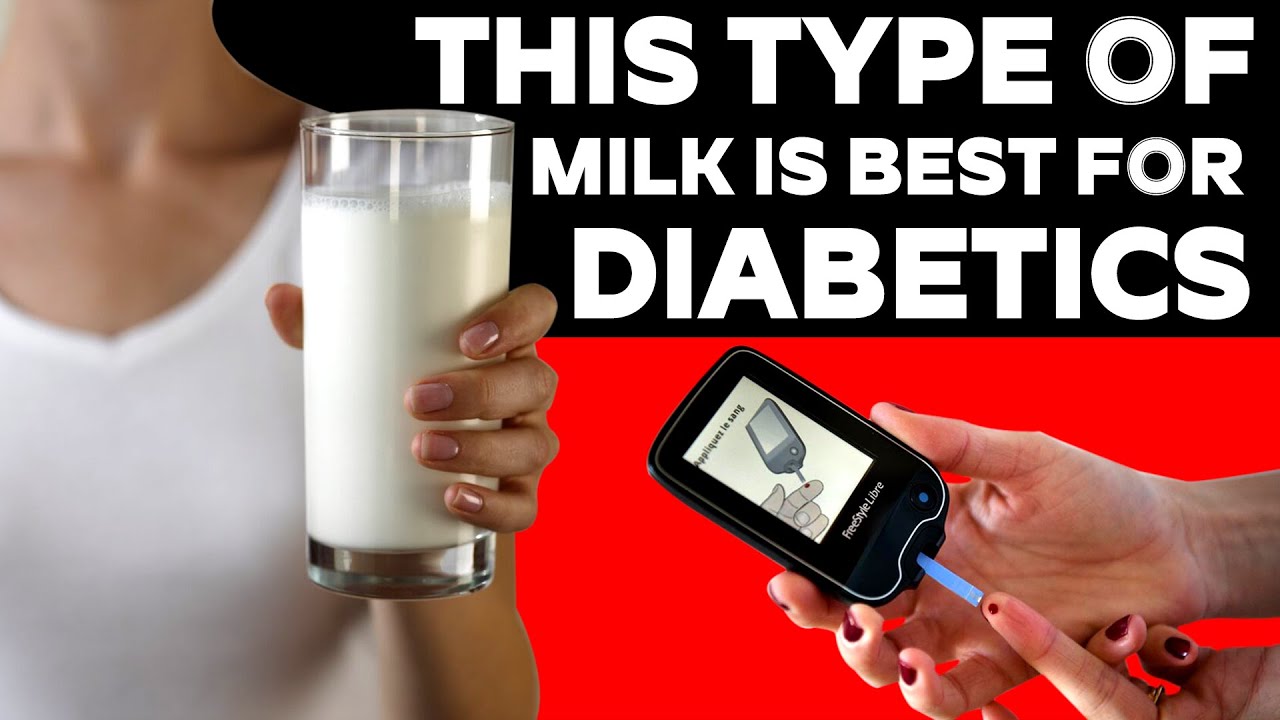
Close-up of pouring fresh milk into a glass. Milk is being poured into a glass on the kitchen table at home.
Yes, it’s ok to have milk in moderation, like 4-8 ounces at a time. 8 ounces of milk has only 11 grams of carbs. But avoid high-sugar drinks and beverages. Milkshakes, dairy products, and beverages are rich in sugars, sweeteners, and flavors. They can quickly spike up blood sugar levels. Milk is better than actually all these beverages that are full of sugar.
One cup of milk will have only 12 grams of carbohydrates, which is good for diabetics. Milk contains vital nutrients and immunoglobulin that boost the immune system and reduce the risks of potential cardiovascular diseases and diabetes. Just like everything else in life, moderation is key when it comes to milk.
While too much of anything can be a bad thing, milk actually contains a number of important nutrients that can be beneficial for your health. For instance, milk is a good source of protein and calcium, both of which are essential for strong bones and muscles.
In addition, milk contains immunoglobulin, which helps to boost the immune system. Contrary to popular belief, milk does not cause obesity – in fact, studies have shown that milk can actually help to prevent obesity. So the next time you're feeling thirsty, reach for a glass of milk instead of a sugary beverage – your body will thank you for it!
Milk is a low-glycemic food
We all know that milk is good for us. It's packed with nutrients and calcium, and it's a great way to start the day. But did you know that milk can also be good for your blood sugar levels? That's right - whole milk has a low glycemic index, which means it won't cause your blood sugar to spike as much as other foods.
And milk's glycemic load is also low, so it won't have a big impact on your blood sugar levels either. So if you're looking for a food that's good for diabetics, look no further than milk. It's a delicious way to keep your blood sugar levels in check.
The glycemic index of whole milk is not that high, meaning it may not spike your blood sugar levels as much if consumed in half a glass. The glycemic index of milk is 31. The glycemic load of milk also is not that high. The glycemic load of milk is 4 for 8 ounces.
The glycemic index (GI) shows how quickly each food affects the blood sugar level when that food is eaten. Similarly, glycemic load is a number that estimates how much the food will raise a person’s blood sugar level. Milk is a low-glycemic food and good for diabetics.
Can diabetics Have milk without raising blood sugar?
If you're anything like me, you love milk. The creamy taste, the satisfying feeling of fullness after a glass… what's not to love? Well, for diabetics, there is one big downside to this otherwise perfect beverage: the sugar content. Milk is loaded with natural sugars, which can quickly raise blood sugar levels.
However, diabetics can enjoy milk in moderation by limiting their intake to four to eight ounces per day. This modest amount of milk can provide essential nutrients without overloading the body with sugar. So go ahead and enjoy that glass of milk – just be sure to limit yourself to a few sips! If you limit your intake to only four to eight ounces, diabetics can drink milk without a major glucose spike.
It is perfectly fine to even have whole-fat milk. Milk contains saturated fat and saturated fat is also linked with an increased risk of type 2 diabetes. But saturated fat is not necessarily bad for you. According to the American diabetes association, 15 grams of saturated fat per day is safe.
Milk can be consumed by diabetics, but only if the amount they drink is restricted to between four and eight ounces. Even drinking milk with all of its natural fat is not going to hurt you in any way. Milk is a source of saturated fat, which, in addition to being associated with an increased risk of type 2 diabetes, milk also contains saturated fat.
However, there is some debate regarding whether or not saturated fat should be avoided. The American Diabetes Association states that a daily consumption of up to 15 grams of saturated fat is acceptable.
A very high intake of milk is bad for diabetic control.
Milk contains saturated fats and carbs and very high intake can be bad. A high intake of milk increases insulin resistance and causes glucose accumulation in the bloodstream. That’s why avoid too much of that milk. Because then you will have too much fat and that will cause too much weight gain.
If you like dairy maybe consider yogurt and cheese for your needs. Low-fat cow milk can be a good option for people with very high cholesterol. Milk is beneficial to one's health, isn't that so? Hold up a second. Despite being an excellent source of vitamins and minerals, milk contains carbohydrates and saturated fats in some amounts.
And just like anything else, there is such a thing as having too much of a good thing. A high consumption of milk can cause insulin resistance to rise, which in turn can lead to an accumulation of glucose in the bloodstream. Because of this, it is essential not to consume an excessive amount of milk.
Consuming an excessive amount of fat can result in weight gain, which can put you at risk for a variety of health issues. If you are looking for an alternative to dairy products, yogurt, and cheese are both good choices to consider. And if drinking cow's milk is a must for you, choosing the low-fat variety will help you maintain a healthy cholesterol level.
How to Drink Milk Without Blood Sugar Spike and Cholesterol Elevation?
Milk is an important component of a healthy diet since it is an excellent source of calcium, phosphorus, and protein. But milk can also be heavy in carbs and saturated fat, which can be harmful for those who have diabetes. So not all types of milk are suitable for diabetics. You can mitigate some of the harmful effects of milk on blood sugar levels by incorporating herbs into your milk.
An herb called dihydroberberine has been found to increase insulin sensitivity and reduce blood sugar levels. Another herb that can help control blood sugar levels is Ceylon cinnamon. These herbs can help milk become a healthier option for diabetics when they are added to it.
Your risk of heart disease can rise if you have an accumulation of LDL cholesterol in your arteries. A high-fat item like milk may cause your LDL cholesterol levels to increase. However, research has found that berberine can assist in lowering LDL cholesterol by as much as 35%.
Dihydroberberine is a more strong version of the naturally occurring chemical berberine, which can be found in some herbs and plants. It has been demonstrated that dihydro berberine lowers LDL cholesterol even more effectively than berberine, making it a useful method for lowering the risk of heart disease.
Gymnema Sylvestre, a herb present in SugarMD Advanced Glucose Support, is a fantastic choice. Gymnema may reduce triglycerides and LDL cholesterol levels. Additionally, it is well known for lowering blood sugar and decreasing sugar cravings. So give SugarMD Advanced Glucose Support a chance, give it a try if you're seeking a natural solution to support your cholesterol levels.
If you're looking for a way to reduce your triglycerides and LDL cholesterol levels, you might want to try gymnema. Gymnema is a climbing herb that is native to India and Africa. It has been used for centuries in Ayurvedic medicine to treat diabetes and obesity.
Gymnema may also help to lower blood sugar levels by inhibiting the absorption of glucose in the intestine. In addition, Gymnema may help to reduce triglycerides and LDL cholesterol levels by stimulating the production of HDL cholesterol.
HDL cholesterol is the "good" cholesterol that helps to remove LDL cholesterol from the arteries. So if you're looking for a natural way to lower your triglycerides and LDL cholesterol levels, give gymnema a try. Indian gooseberry is an herb also found in SugarMD Advanced Glucose Support that has several plant chemicals.
There is an increasing amount of evidence that these chemicals help our body deal with blood sugar, cholesterol, and fat in a way that appears beneficial. The Indian gooseberry, also known as the amla, is a small, spherical fruit with a hard, green exterior. It is native to India and China and has been used in Ayurvedic medicine for centuries.
The Indian gooseberry is rich in Vitamin C and is often used as a natural way to boost immunity. It can be eaten fresh, dried, or made into a powder. It can also be used to make chutneys and pickles. The Indian gooseberry is an important part of many traditional dishes and has a wide range of health benefits.
Drink responsibly
I would think that the milk actually will improve your satiety and will make you feel full without causing a major blood sugar level rise. Milk is not a bad for after all. Don't give up milk if you like it so much. It will NOT lower your blood sugar for sure but blood sugar rise can be managable.
Studies show that milk helps the metabolism and appetite of diabetics. It helps you feel full and comfortable. But I wouldn't recommend just drinking milk and going to bed either. Again anything you put into your body if you're not burning those calories, it's just going to turn into fat.
That's why diabetics should add exercise to their schedule. You can also use milk and yogurt as a snack. So full fat or whole fat whole milk is all fine. Bottom line Food choices are really very important for diabetic people. Always consume a balanced diet and avoid unhealthy foods.
I recommend having whole milk without added sugars. Diabetics have to avoid milk that is high in added carbs, sugar, and fats. Similarly, diabetics should drink milk in moderation but avoid flavored milkshakes, smoothies, chocolates, and sugary dairy products.
They should check food labels for information about calories, sugar, and carb count. Regularly monitor your blood sugar. Add exercise to your lifestyle. While milk is a nutritious source of calcium and other essential nutrients, it also contains sugar and fat that can impact blood sugar levels.
For this reason, it's important to drink milk responsibly if you have diabetes. Start by choosing low-fat or skim milk, which has fewer calories and less fat than whole milk. Then, be mindful of how much milk you drink in a day.
Stick to the recommended amount for your age and activity level, and spread your milk intake throughout the day to help control blood sugar levels. By following these simple tips, you can enjoy milk as part of a healthy diet without jeopardizing your diabetes management. Download our app at the Apple or Google store by searching the SugarMDs app.
Ahmet Ergin, MD, FACE, CDCES, ECNU Endocrinologist, Diabetes Educator www.sugarmds.com
☆ 𝘾𝙊𝙉𝙉𝙀𝘾𝙏 ☆
Facebook: https://www.facebook.com/sugarmdsonline/
Instagram: https://www.instagram.com/sugarmds/
Pinterest: https://www.pinterest.com/Sugarmds/
Website: https://sugarmds.com
——————————————————————————
Ahmet Ergin, MD, is a specialist physician in endocrinology, diabetes, and metabolism. He is interested in preventive cardiology as well. He has been practicing for over 10 years, having seen over 30,000 patients in his career so far. He speaks science and is proud to educate his patients with real data rather than hearsay.
For collaboration requests please email me: at ask@sugarmds.com
Disclaimer: Any information on diseases and treatments available at this channel is intended for general guidance only and must never be considered a substitute for the advice provided by your doctor or other qualified healthcare professional.
Always seek the advice of your physician or other qualified healthcare professional with questions you may have regarding your medical condition.
iWritten By Dr. Ahmet Ergin
463 total articles
Meet Dr. Ahmet Ergin, a highly skilled and dedicated endocrinologist with a passion for diabetes care. Dr. Ergin earned his medical degree with honors from Marmara University in Istanbul. He completed internal medicine residency and endocrinology fellowship at Cleveland Clinic. Dr. Ergin is board-certified in Internal Medicine, Endocrinology, Diabetes, and Metabolism due to his vast medical expertise. He's a certified diabetes educator, author of “The Ultimate Diabetes Book,” and founder of “the SugarMD YouTube channel.” Dr. Ergin offers exceptional diabetes care to his patients in Port Saint Lucie, FL, helping them manage effectively. For a closer look into his insights and experiences, connect with Dr. Ahmet Ergin on LinkedIn, Instagram, and YouTube.”
Disclaimer: These statements have not been evaluated by the Food and Drug Administration. Information on this website isn't intended to treat, cure or prevent any disease. Discuss with your doctor and do not self-treat.
Products







